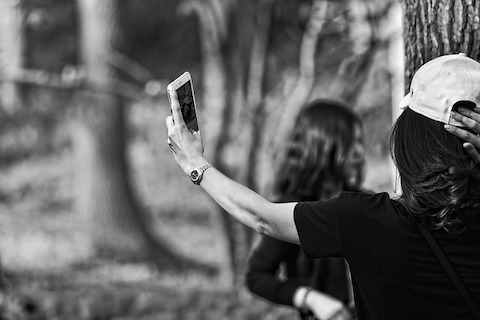Signs of Narcissism
By Dr. Margaret PaulAugust 21, 2008
If you are a caring, empathic person, you might be vulnerable to a narcissist. Discover how you can likely know a narcissist in advance of getting involved.
 Is there a way to tell early in a relationship if someone is suffering from Narcissistic Personality Disorder (NPD)?
Is there a way to tell early in a relationship if someone is suffering from Narcissistic Personality Disorder (NPD)?
NPD is defined by the Diagnostic and Statistical Manual of Mental Disorders (DSM IV-R) as "a pervasive pattern of grandiosity, need for admiration and a lack of empathy." People with NPD have a sense of entitlement, are often personally exploitive, and they see themselves as "special." They are often arrogant and envious of others.
Generally, people with NPD are smart and charismatic, which makes it hard to know what you are really dealing with.
But there are often some early signs that may point to NPD.
1. If someone tells you early in the relationship how special you are, be cautious. People with NPD seem to have a 6th sense regarding what you want to hear. If you are not taking responsibility for loving and validating yourself, you might be very vulnerable to someone who tells you how incredible you are, how special and unique you are, how he or she has never meet someone like you. In addition, the NPD person might, at first, be an excellent listener, making you feel even more cherished and special.
2. The NPD person often comes on very strong very early in the relationship, professing undying love for you. You are the love of his life. You are the person she has been looking for all her life. He wants to meet your parents, your siblings. She might even become fast friends with your parents. He wants to move in together very quickly, as there is no reason to wait. She makes it clear that she knows what she wants - you.
3. BUT, he might say he will call and doesn't. She might consistently be late and have every excuse for it. If you get upset about it, he gets angry, having no empathy for having kept you waiting. In fact, you notice that there are numerous situations where this person lacks empathy - like toward a waitress or other service person. This lack of empathy is one of the hallmarks of NPD. NPDs often choose people who are very empathic, hoping to get their narcissistic supply met due to the other's empathy. If you are an empathic person, you can feel the small abandoned child within the NPD, and if you are a caretaker, your heart-strings will be pulled by this abandoned child. So, if you find yourself feeling badly for the person when you are actually the "injured party" in the situation - like if he or she is late and is defensive about it with many excuses - be cautious!
4. Small things may trigger unreasonable rage, leaving you completely confused. The NPD has a strange kind of logic when having become rageful - a way of blaming you that makes you scratch your head and wonder about yourself. It is a crazymaking kind of logic. If you often find yourself very confused about an interaction, be cautious!
5. If the person is married and tells you how disconnected he is from his partner, how much she wants out of the marriage but can't do this to their partner or children, beware. This lack of integrity of pursuing another relationship while married is common with NPDs. The person generally has no intention of leaving the marriage. He just wants more attention, admiration, or sex than he is getting in his or her marriage.
While not all of these situations may occur, even if one of them does, be cautious. Even one of these can indicate that the person is suffering from NPD, and you will likely end up hurt and bewildered.
Heal your relationship with Dr. Margaret’s 30-Day online video relationship course: Wildly, Deeply, Joyously in Love.
 Send this article to a friend
Send this article to a friend  Print this article
Print this article  Bookmarked 18 time(s)
Bookmarked 18 time(s)
| Related Articles |
|---|
| Self-love or Narcissism? |
| Is There Such A Thing As Healthy Narcissism? |
| Discover Your Level of Narcissism |
| Codependent Relationships: Takers and Caretakers |
| "You're Not Meeting My Needs" |
Comments
| Author | Comment | Date |
|---|---|---|
| Join the Inner Bonding Community to add your comment to articles and see the comments of others... | ||

Daily Inspiration
In every single subtle color that forms the mosaic in our garden, is a soft, nourishment for the soul - a caress of the Divine.
By Dr. Erika Chopich

 Share with Del.icio.us
Share with Del.icio.us Share with Digg
Share with Digg






